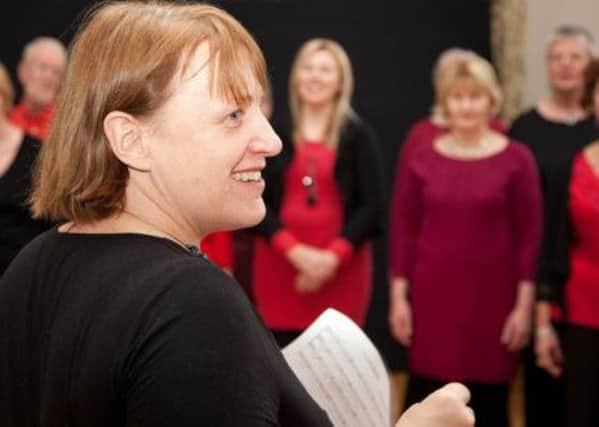Choir to give new voice to long-lost carols


The “forgotten carols” collection, which will be performed across Scotland this Christmas, includes Hebridean wassailing songs, tunes from the travelling community and little-known Gaelic carols. They will be performed at the Scottish Storytelling Centre in Edinburgh next weekend, and at concerts across Dumfries and Galloway.
Ali Burns, who collected the carols and performs some of them with her Feral Choir, based in Dumfries and Galloway, has spent years tracking the carols down from old songbooks, libraries and obscure collections, some as far away as the United States.
Advertisement
Hide Ad“I started researching lost carols mainly because I was fed up with Christmas and the same songs coming round again and again,” she said.
“I wanted to recreate Christmas for myself, to reinvigorate it and put some magic back into it. Then I started researching folk carols and became a bit obsessed with it.
“Only some Scottish carols have survived through the years. The ones we do have include wassailing songs from the Hebrides, Orkney and Shetland, some of which are still intact and still sung in local areas. Some are Gaelic. One, the Christ Child’s Lullaby, has had a revival in the last ten years and was written by a Scottish minister, and some are not so much about Christmas as New Year.”
One Gaelic carol, Heire Bannag, was originally collected by Alexander Carmichael, who spent years travelling the Hebrides in search of old folk songs, prayers and writings in the late 19th century. He heard it both on the remote Isle of Scalpay, near Harris, and the Isle of Mingulay, near Barra, probably in the late 1800s. It was sung as part of a house-visiting ceremony by crofters around Christmas time.
Another song, Open The Door For The Auld Year, was written by the Scottish poet William Soutar, who studied at Edinburgh University after serving in the First World War and died in 1943 after a lifetime racked with illness. Burns says she has set some poems and texts she has come across to music, trying to interpret the type of music that would be suitable for the words, and even written words to tunes without any lyrics.
“I’ve written some stuff myself in Scots that I use in old songs local to Galloway,” said Burns, who is based in Castle Douglas in Kirkcudbrightshire.
Advertisement
Hide AdAnd she said some of the most rambunctious of the “lost” carols come from the traveller community.
“A lot of their stories are songs from the Apocryphal Gospels – Christian works that recount the life or sayings of Jesus but are not included in the New Testament,” she said.
Advertisement
Hide Ad“They include one called King Herod And The Cock, about King Herod being served a cockerel for dinner that suddenly sits up and crows three times, signifying the arrival of a baby. Some are of obscure miracles Jesus was supposed to have performed as a baby. And then there’s the Cherry Tree Carol, versions of which come from all over Britain and even as far away as America, and is sometimes known as the Apple Tree Carol.”